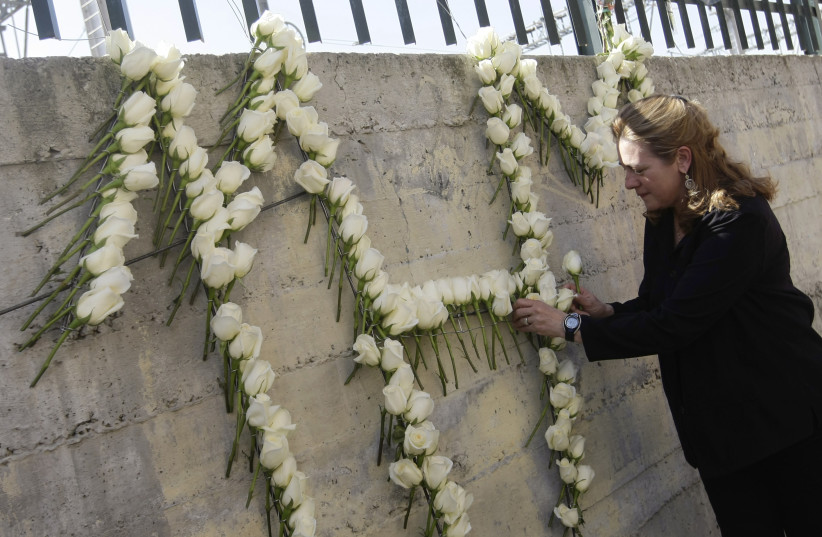This week marked the 20th anniversary of the tragic 11m attacks in Madrid, Spain, renowned as the first large-scale jihadi terror assault on European soil. Twenty years on, significant shifts have occurred within both jihadi terror organizations in Europe and the strategies employed by countries in combatting jihadi terrorism. Despite these changes, the issue remains a pressing concern for European governments.
For more stories from The Media Line, go to themedialine.org
For more stories from The Media Line go to themedialine.org
March 11, 2004, witnessed a sequence of explosions in the commuter trains upon their arrival at the Atocha station in Madrid. This devastating event resulted in 191 fatalities and 1,800 injuries, marking it as the most extensive jihadi attack ever carried out on European territory.
This was the first instance in which European authorities faced jihadi terrorism on such a scale. “Although 9/11 marked the arrival of the phenomenon of jihadi terrorism to the general public, in Europe, it seemed like a distant event,” said Carmelo Aguilera Galindo, lawyer and researcher of the jihadi terrorist phenomenon.
Aguilera Galindo told The Media Line that the 11M attacks highlighted the reality of a threat that could take place on any street in Europe. “The intelligence services, police, and criminal codes had to adapt to a new threat, which, like a good virus, knows how to adapt to all areas to achieve its goals,” he added.
Member of the Spanish security forces, Dr. Miguel Leopoldo García Peña, who is also a professor at the Universidad Católica de Ávila and an expert in radicalization and jihadi terrorism, tells The Media Line that the 11M attacks were a turning point in European policies to combat radicalization and jihadi terrorism.

“They started the tendency to implement a preventive model against terrorism, replacing reactive models,” he said, adding that in 2005, this preventive model was established in the “EU Strategy for Combating Radicalization and Recruitment to Terrorism,” a document in which the term “combating radicalization” appears for the first time as one of the most important pillars in the fight against jihadist terrorism.
Terrorism remains a pressing issue
Aguilera Galindo says that despite two decades of combating jihadi terrorism in his country, the issue remains pressing and central to the responsibilities of Spain’s security forces.
He notes that in 2023 alone, there were 36 operations against jihadi terrorism, and 78 people were arrested in practically all autonomous communities in Spain.
“There is no doubt that al-Qaida and ‘Daesh’ continue to be the two greatest threats [in terms of terrorism] against Europe,” he said, using the Arabic abbreviation for Islamic State. He also noted that this could be through either organized cells or the so-called “lone wolves.”
In 2014, the declaration of the Caliphate by Al Baghdadi produced a great call to European citizens to fight in their ranks in Syria and Iraq, and many of these foreign fighters are now trying to return to their countries and families, Aguilera Galindo explains, adding that this represents a serious security problem for the European authorities.
García Peña notes that the radicalization process used by jihadi organizations to recruit people in Europe has undergone several changes in the last few years, all of which make it a more serious threat.
The first and probably one of the most significant changes, according to García Peña, is the platform in which the radicalization process takes place. In the past, it was done in the streets, mosques, and other physical scenarios, but today, online radicalization dominates, which he described as “Something unthinkable a few years ago.”
This is one of many changes, however. García Peña says that the time frame has also evolved. “Radicalization of individuals could involve a process of months or even years,” he said, adding that today, the so-called “express radicalizations” are much more common. “A few weeks can be enough to completely radicalize an individual,” he warns.
He added that in terms of methodology, designed and elaborate attacks that were more easily detectable by security forces and intelligence services have been replaced by low-cost attacks. These, he explains, consist of simple attacks with hardly any preparation or training, and their low cost allows them to be available to anyone. García Peña cites knife attacks as one of the most common.
Lastly, the target of radicalization has also changed. “The evolution of radicalization presents us with increasingly younger individuals, including minors that are more radicalized and closer to attacks,” he said, adding that the number of radicalized women is also gradually growing year after year.
In the case of Spain, García Peña adds, “The Security Forces and Corps, within the fight against radicalization and jihadi terrorism, are a global reference.” He notes that it is a complex mission, as terrorists only need to be right once to see their purposes fulfilled, while the security forces cannot make mistakes. “Without a doubt, they have the simplest role,” he said.
